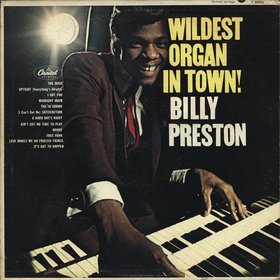BAD RELIGION: TESTED (1997)
1) Operation
Rescue; 2) Punk Rock Song; 3) Tomorrow; 4) A Walk; 5) God Song; 6) Pity The
Dead; 7) One Thousand More Fools; 8) Drunk Sincerity; 9) Generator; 10) Change Of
Ideas; 11) Portrait Of Authority; 12) What It Is; 13) Dream Of Unity; 14) Sanity;
15) American Jesus; 16) Do What You Want; 17) Part III; 18) 10 In 2010; 19) No
Direction; 20) Along The Way; 21) Recipe For Hate; 22) Fuck Armageddon; 23) It's
Reciprocal; 24) Struck A Nerve; 25) Leave Mine To Me; 26) Tested; 27) No
Control.
Get out the calculators. 3 completely new,
previously unissued songs; 5 songs from The
Gray Race (1996); 2 songs from Stranger
Than Fiction (1994); 4 songs from Recipe
For Hate (1993); 3 songs from Generator
(1992); 2 songs from Against The Grain
(1990); 3 songs from No Control
(1989); 2 songs from Suffer (1988);
1 song from Back To The Known
(1984); 2 songs from How Could Hell Be
Any Worse (1982). Boy, do these guys have a large discography — and boy,
do they love to love it. All except Into
The Unknown, that is, which is important, because it is the only clue we
have here that Greg Graffin can
actually accept a few mistakes (or at least one mistake) in his life.
If there could ever be a point in a Bad Religion
live album, then Graffin and Co. make everything in their power to avoid it.
First, a real good live punk rock show should last about the same as a real
good punk rock album — no more than half an hour at best; Tested spills over an hour-long vessel, and listening to Bad
Religion for more than sixty minutes is only recommendable for real strong guys
with lots of frustration to vent,
more than I could ever imagine (and I'm feeling pretty pissed off right now
myself). Second, even in punk rock, it does help if you try and make your
material a little bit different from
the studio originals — even if you just speed it up a bit, like the Ramones —
and this might be the main reason why punk bands do not frequently bother with
live recordings, since most of them already have a live-in-the-studio sound.
Third and most important, Graffin chose a very
strange approach here: instead of doing like everybody else and «miking the
stage», he simply directed all the instruments straight into the recording
console. This allowed the sound to be captured as faithfully and cleanly as
possible, and the reasonable point to be lost completely. The new, crazy point
is to answer the question: «How fuckin' good — technically — are Bad Religion
when they go onstage and play their material?» The normal answer to that question, in a logical world, would be: «Who
fuckin' cares?» Only a band with a very
puffed up sense of self-importance would demand a different one.
In addition, the actual recordings were all
taken from different shows and selected with great care out of a pile of
look-alikes — you'd think it was Glenn Gould here sorting through the tapes,
not the leader of a generic hardcore outfit regularly operating at a
three-chord level. With no continuity whatsoever to the proceedings, they
don't even formally qualify as a «live punk rock show». What's the actual
sense, then? Just try to assert your intellectual superiority over all
competition by «doing something different»? How about some humility here? Would
be nice for a band whose workbag of musical ideas is kinda skinny, to put it
mildly.
Not that the whole thing is utterly bland,
uninspired, disgusting, or anything. The song selection is all right — at this
point, it is fairly difficult even to remember what were the «highlights» and
the «lowlights» on the band's original albums anyway — and of the new songs,
only the super-slow, ultra-pathetic ʽDream Of Unityʼ goes over the top in an
adequacy-defying manner. As a general retrospective, it isn't too bad (although
one wonders why they didn't arrange the songs in chronological order, if they are
fading out after each track anyway). But high up above the simple «like it or
hate it» level, most live albums set out to prove a purpose — and Tested seems to prove all the wrong
ones. Thumbs
down, simply because I doubt I'll ever listen to it again. In fact,
I have similar doubts about plenty of other BR albums, but if there is anything
in particular that the title of Tested
refers to — it's patience, yours and mine. In any case, buying the album won't
solve the world's problems, as Graffin would have you do. You might just as
well donate your money to a financial pyramid.












